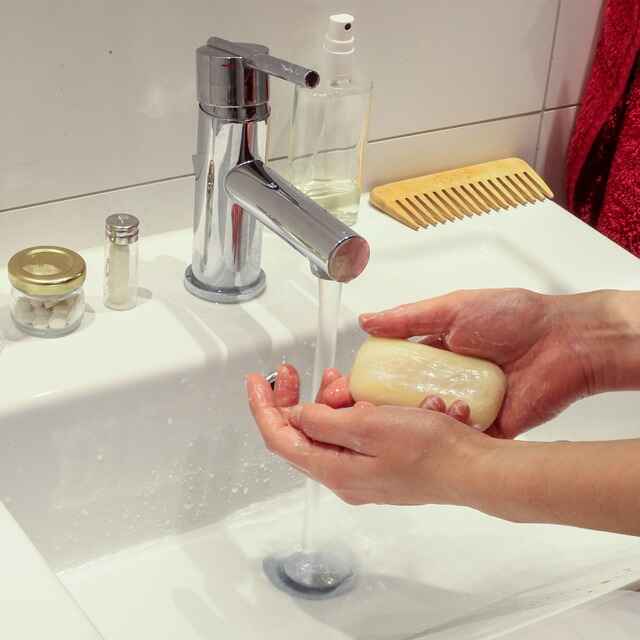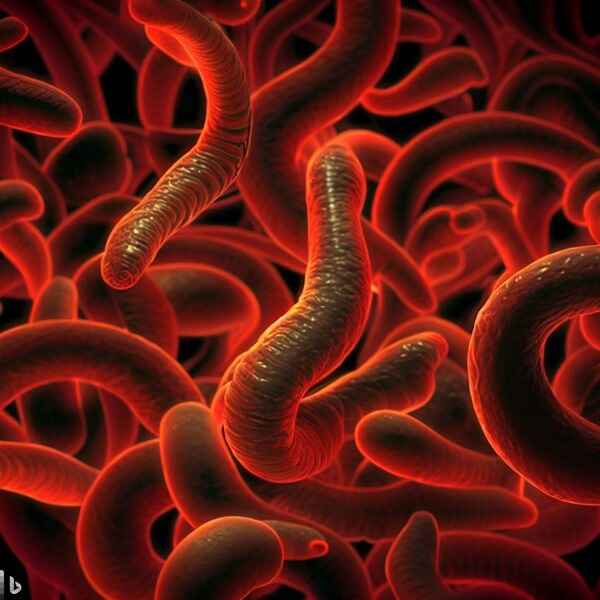What are Parasites?
A parasite is an organism that lives in or on the living being of another species. Human disease can be caused by three types of parasites: protozoa, helminths, and ectoparasites. Protozoa and helminths mostly impact the intestines, although lice and mites can attach to or burrow into the skin and remain there for extended periods.
The majority of protozoa and helminths are non-pathogenic (they do not cause disease) or cause only minor illnesses. Some, on the other hand, can cause severe sickness in humans. Parasitic members can be found in many invertebrate groups. Fleas, ticks, parasitic mites, leeches, worms (including roundworms), and some parasitic insects (like mosquitoes) are examples of widely recognized parasites.
Also, Read Complete Guide on Dementia: Causes, Symptoms, and Care Tips
Causes
Parasites are living organisms that feed on and live inside other living organisms, such as your body. A bug bite, contaminated food or water, or sexual contact are every means of getting them. Different parasite diseases respond differently to treatment.
The size of parasites varies, from the microscopic protozoa (one-celled creatures) to the visible worms. Infections with Giardia can result from contaminated water sources. Toxoplasmosis, which can be harmful to expectant mothers, can be spread by cats. Others, like malaria, are widespread around the world.
The main categories of parasites that can harm humans are protozoa, helminths, and ectoparasites.
- Protozoa are tiny, one-celled organisms that can either live alone or as parasites.
- Helminths are huge, multicellular organisms that may be seen with the naked eye in adult form.
- Ectoparasites refers to blood-sucking arthropods such as mosquitos (because they rely on a blood meal from a human host for survival), typically, it is used to describe creatures like ticks, fleas, lice, and mites that cling to or burrow into the skin and remain there for a long time (e.g., weeks to months).
Symptoms
The symptoms of parasites can vary because there are numerous different kinds of parasites. Common signs of parasites include:
- Diarrhoea.
- vomiting and nauseous.
- ache in the abdomen.
- Loss of weight without reason.
- an increase in appetite.
- Muscle pain.
- Fever.
- Chills.
- sleep issues (insomnia).
- Fatigue.
- Weakness.
- A skin rash.
Symptoms may not show up right away if you have a parasite, or they may take a long time to manifest. Additionally, even if you don’t have any symptoms, you could unintentionally transmit a parasite to someone else who does.

Risk factors
A parasite infection can affect anyone. But some individuals are more ineffective than others. You are more susceptible to contracting a parasite infection if you:
- have a weakened immune system or are afflicted with another disease
- reside or visit tropical or subtropical areas of the world
- lack of access to clean drinking water
- Swim in ponds, rivers, or lakes where worms or other parasites like Giardia are frequent.
- working in an environment where you frequently come into contact with excrement, such as daycare or a job that requires you to interact with dirt
Diagnosis
There are numerous types of laboratory tests available to diagnose parasite infections. Your signs and symptoms, any other medical issues you might have, and your travel history will all be taken into consideration when deciding what kind of test(s) to order. Your doctor may prescribe a variety of tests because making a diagnosis can be difficult.
- A faecal (stool) exam, also called an ova and parasite test (O&P) – This test is used to identify parasites that lead to stomach discomfort such as cramps, diarrhoea, loose or watery faeces, and flatulence (gas). The CDC recommends analysing three or more stool samples obtained on different days.
- Endoscopy/Colonoscopy – Endoscopy is used to identify parasites that result in cramping, gas, loose or watery faeces, diarrhoea, and other gastrointestinal illnesses.
- Blood test – Your doctor can ask for one of these two general types of blood tests:
- Serology – This test is performed to detect antibodies or parasite antigens created when the immune system is attempting to fight off an intruder and a parasite infects the body.
- Blood Smear – Using a blood smear, parasites that are present in the blood can be detected.
- X-ray, Magnetic Resonance Imaging (MRI) scan, and Computerised Axial Tomography scan (CAT) – These tests are utilized to hunt for parasitic contaminations that seem to cause organ harm.
Treatment
Depending on the kind of parasite you have, the treatment you receive will vary. Your healthcare professional might advise:
- Antiparasitic medications.
- Antibiotics.
- Shampoos.
- Ointments.
Be sure to adhere to your provider’s directions. If not, your parasite can recur.
Your provider may also advise you regularly to treat ectoparasites such as lice, fleas, and ticks:
- Taking a bath with soap.
- Using hot water to wash your clothes, bedding, and towels.
- Vacuuming carpets, mattresses, and furniture, then put the vacuum bag outside into the trash.

Diet
- Coffee, sweets, alcohol, and processed carbohydrates should all be avoided.
- Increase the amount of garlic you use in your dishes.
- Increase your intake of carrots, sweet potatoes, and squash. These foods are high in beta-carotene, which your body converts to vitamin A. Vitamin A aids your body’s defence against parasitic worms and larvae.
- Probiotic-rich foods like yoghurt can help you rebuild “good” bacteria in your stomach.
- Consume meals that are high in vitamin C and B vitamins.
- Avoid eating raw meat or fish.
- Some natural medicine practitioners also recommend a gut cleanse or detox. This is combining a high-fibre diet with pills to help cleanse your intestines. Psyllium, beetroot, and flaxseeds are among the supplements.
Prevention
- Use a condom when having sex.
- Wash your hands frequently, especially after handling raw meat or feces.
- Cook food until it reaches the desired internal temperature.
- When travelling, drink clean water, including bottled water.
- Avoid drinking from lakes, streams, or ponds.
- When you’re pregnant, stay away from cat litter and faeces.





